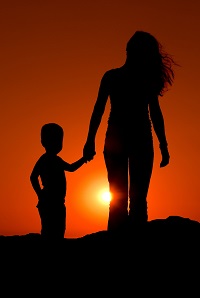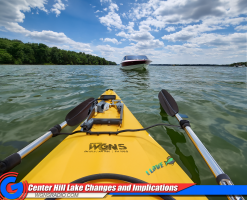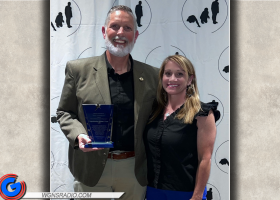The Tennessee Department of Health is working to reduce deaths and life-threatening conditions caused by summer heat. With temperatures reaching into the 90s in much of the state, Tennessee residents and visitors are urged to exercise caution and take preventive steps to avoid heat exhaustion and heat stroke.
TDH and the Tennessee Emergency Management Agency remind first responders including paramedics, police and fire crews, to take appropriate steps to protect themselves and to be extra observant for signs of heat-related illnesses. TDH also urges doctors and hospital staff members to be vigilant for signs of heat-related illnesses among patients, and for residents to look out for one another.
"It's important for Tennesseans to take action to help protect others who may be especially vulnerable to heat-related health problems, such as checking on neighbors who may be alone or reluctant to ask for help," said TEMA Interim Director and Assistant Commissioner/Homeland Security Advisor David Purkey. "This simple measure can help prevent an emergency and save someone's life."
"Check regularly and often during hot weather with friends, relatives and others who are elderly and/or take medications," said TDH Chief Medical Officer David Reagan, MD, PhD. "Some medications can alter the body's ability to regulate body temperature, and some can cause impaired thinking, causing people to not take appropriate actions to leave an area that's too hot."
Here are some ways to stay safe and healthy in extreme heat:
- Drink plenty of fluids. Pay attention to your thirst and drink cool liquids before you become very thirsty. Water is good, and sugar-free sports drinks can help replace lost salt and minerals. Avoid drinks with caffeine, which can cause the body to lose water. Avoid alcohol, which can dehydrate the body and impair your ability to think clearly, preventing recognition of heat distress signals.
- Do not leave people or pets in cars for any length of time. Cars can heat to life-threatening temperatures in just a few minutes.
- Stay cool indoors. If your home has more than one level, the lowest level will usually be cooler. Turn off unnecessary heat-generating items such as televisions and lights, and use fans if you have them. Consider cooking with a microwave instead of heating up the kitchen with the stove or oven. Take cool showers or baths. If your home does not have air conditioning, take advantage of air conditioned facilities such as shopping venues, restaurants, senior centers, libraries, churches and synagogues and recreation centers.
- Limit time outside when possible. If you must be outside, wear light colored clothing, a hat and sunscreen, and seek shade whenever possible. Try to run errands early or late in the day when temperatures are cooler. Drink water and sports drinks often; hydration will help prevent heat exhaustion and heat stroke.
- Pace yourself if working or exercising outdoors. Try to work during early morning or evening hours to avoid being outside in the hottest part of the day. If you are not used to working or exercising in a hot environment, start slowly and gradually increase effort. If your heart is pounding or you gasp for breath, stop the activity and rest in a cool, shady area.
- Use the buddy system. Partner with a friend and watch each other for signs of heat-related illness. Senior citizens are more susceptible, so if you know someone over age 65, check on him or her over the phone twice a day.
Heat exhaustion is caused by depletion of body fluids and electrolytes and usually occurs in extreme heat or when a person is unable to adapt to heat. Signs include weakness, nausea, cramps and sometimes loss of consciousness. Heat stroke is a more serious condition that occurs when the body's core temperature rises to dangerous levels; the body's cooling system and sweating stop and can damage the brain and other organs. Signs of heat stroke include short, rapid breathing; fast pulse; lack of sweating and confusion. These indicate immediate medical treatment is required, so call 911 if you or someone else has these symptoms and take steps right away to get the person to a cooler area until more help arrives.












